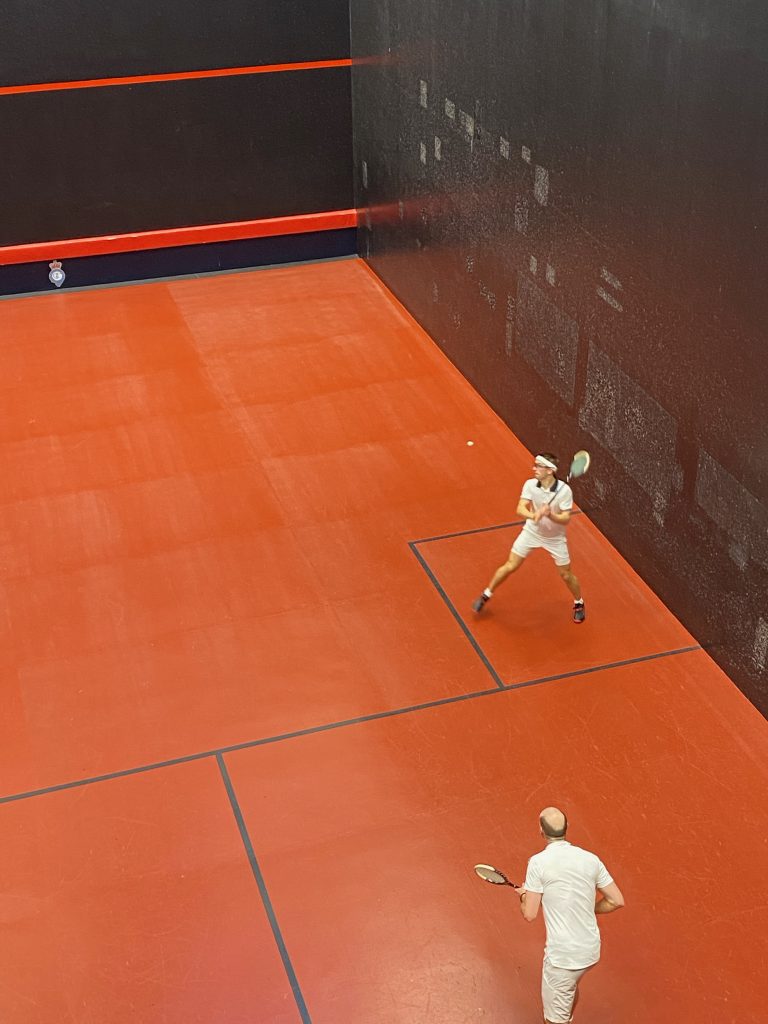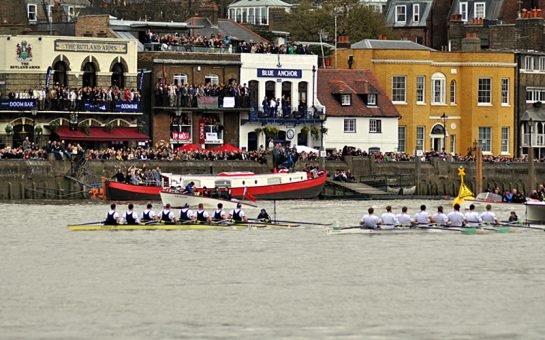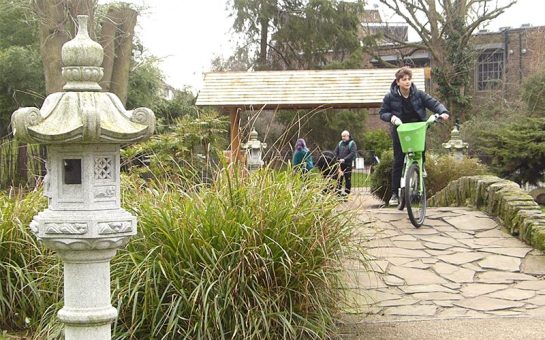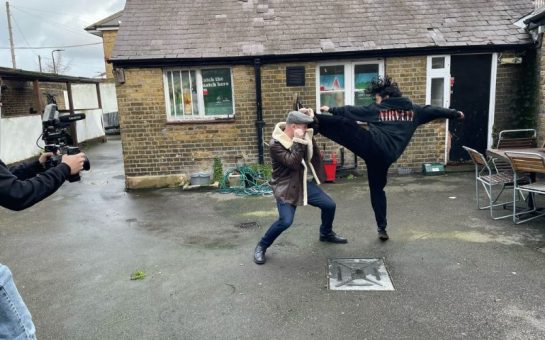The Rackets World Championship Doubles eliminator was decided on Saturday at Queens Club, with Tom Billings and Richard Owen winning the right to challenge for the title in November.
The first leg of the eliminator competition took place on Tuesday 5 October, and the pair started their campaign with a 15-7, 15-8, 15-3, 15-3 win over Mike Bailey and Nick James.
World Championships are played over two best-of-seven-game matches and if both pairs win one match, then the pair with the most games wins meaning that Billings and Owen only needed to secure one more game on Saturday at 3pm.
But at the start of the match, the Tennis & Rackets Association (T&RA) Chairman of Rackets, Rory Sutton, announced that it would be played best of seven regardless, to ensure a match for the packed gallery.
Unfortunately for Bailey and James, Billings is the current World Championship Singles title-holder, and Owen is strongly ranked on points in both Doubles and Singles tables.
And their strength showed, as the match ended 15-3, 15-10, 15-12, 11-15, 15-2 to Billings and Owens, who have won the opportunity to challenge current title-holders Jonathan Larken and James Stout in London and New York this November.

Credit: Tamara Prenn
The historic sport, originating in Fleet Prison debtors’ prison in the early 1800s, may be little-known, but practitioners and fans are obsessive.
Ties are formed early, as the majority of courts in the UK are in mixed and single-sex boarding schools, but the epicentre of the British mens and women’s competitive game is in London, at The Queens Club in Hammersmith.
Rackets is often described as the precursor to squash, but to anyone who has ever watched the sport, and been overwhelmed by the greater speed and sound, squash loses all its thrill to watch, or even play.
The ball, solid polythene wrapped in white cotton and adhesive tape, is lethal when hit with skill, and gallery spectators are advised to keep an eye on the match in case their wine glass or watch face get smashed by a stray ball.
Due to the pandemic, this eliminator had been delayed for over a year, and rescheduling has interfered with the qualifying period, during which players gaining points through other matches played and competitions entered, such as the British Open which was cancelled this year.
Sutton said: “There was no real precedent or rulebook.
“Some people were left unhappy with decisions, and there were some who this schedule favours.
“There was a pair who felt they had a good shot winning the British Open, and that would have given them enough points to get into the eliminator process, but we had to just declare the qualifying process over – we’ve done what was best for the game.”
But Sutton is delighted the competitive game is back, regardless of obstacles passed.
He added: “You worry that people who haven’t played it for 18 months might stop or lose the enthusiasm but clearly, absence makes the heart grow fonder.”




